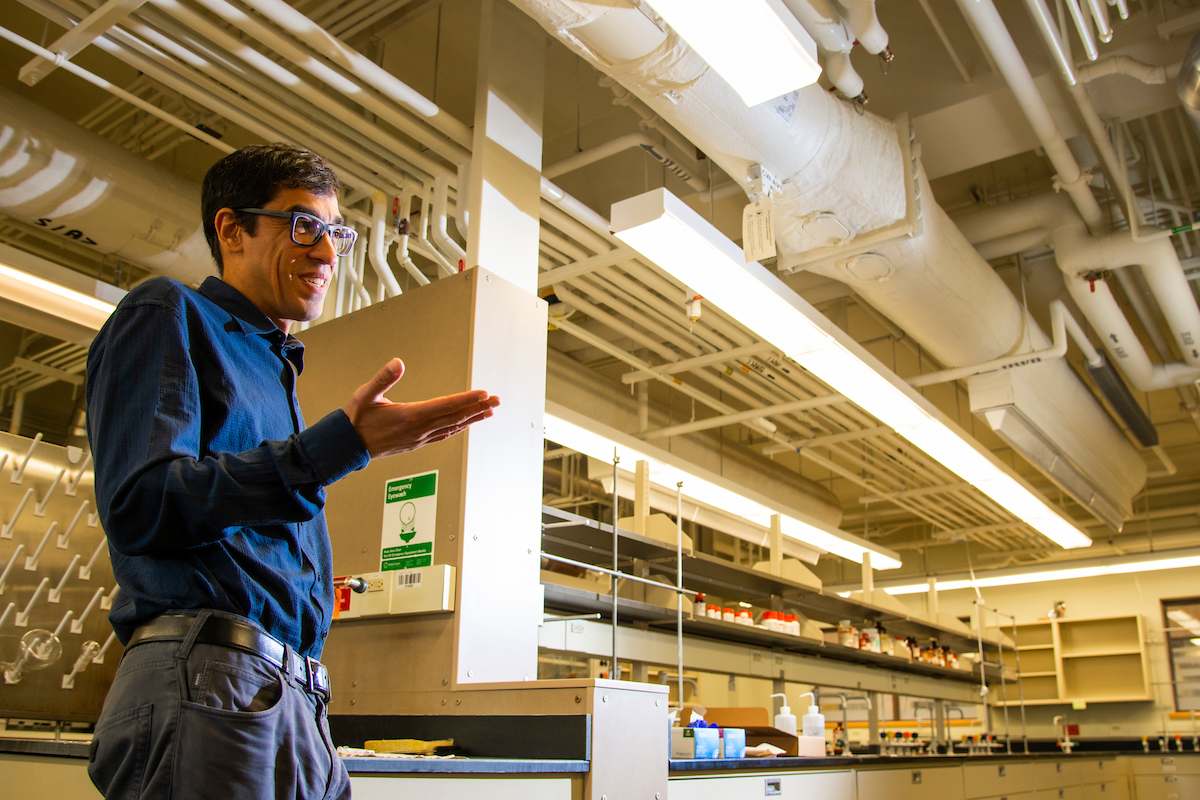
Sheref Mansy, new professor in the Department of Chemistry, focuses his research on prebiotic chemistry to understand how life on Earth began. Photo credit: John Ulan
For Sheref Mansy, there's no question that the mysteries of Earth's evolution begin before life itself. Mansy comes to the University of Alberta from the University of Trento in Italy.
A new professor in the Department of Chemistry, Mansy's research focuses on prebiotic chemistry to understand how life on Earth began. His laboratory constructs artificial cell-like systems that can chemically communicate with natural, living cells, and his work also involves exploring the potential role of iron-sulfur peptides in the emergence of metabolic-like reactions on early Earth-helping to piece together the puzzle of how chemical processes become life.
What brought you to the University of Alberta?
I very much like the opportunities that big universities give to students and faculty alike. At a place like the U of A, students can pursue whatever interests them, and we as faculty have great resources and dedicated colleagues. Here, one can have it all.
Tell us about your research program.
Like most academics, I have worked on a few different things, but where I would like to concentrate my efforts over the next couple of years is on prebiotic chemistry. There is probably no greater mystery than deciphering where we came from. I imagine everyone has thought about this, and now I believe a critical mass of excellent scientists are finally systematically approaching this problem from a variety of angles. It's a very exciting time to be a part of this field, and I am confident that huge discoveries are on the horizon. We may never know exactly how life began on our planet, but I think we will be able to demonstrate plausible, experimentally-tested scenarios. Imagine how much differently we'll view ourselves and our place in the solar system once we have a handle on how inanimate matter becomes alive.
What inspired you to enter this field?
I find it remarkable that the characteristics of life that we tend to attribute to highly complex evolutionary processes can often be explained by simple chemical-physical forces. Once I realized that even a few, prebiotically plausible molecules can react in ways that mimic contemporary living organisms, I was hooked. Paradoxically, there is so much about life and biology that we can learn by not working with living organisms. In fact, we can learn things that would have likely never been uncovered through biological research alone.
Tell us about your teaching.
I'll teach introductory university chemistry my first year here. I very much enjoy being one of those that introduces the field and department to incoming undergraduate students. In the past, I have taught general chemistry, biochemistry, and biophysics courses.
Teaching is important to me, because I love working with young people. What better way to be exposed to new ideas than to work with those that see things with fresh eyes? In turn, I can share my own experiences to help students get over common stumbling blocks and to see real world applications, either in academic research or in daily life. What's the alternative for those of us who want to do research for a living? To work at a research institute without students? That sounds way too boring to me.
Anything else you'd like to add?
Although I am from the United States, I spent the last 10 years in Italy. It's exciting to come back to North America and to experience that famous Albertan weather.